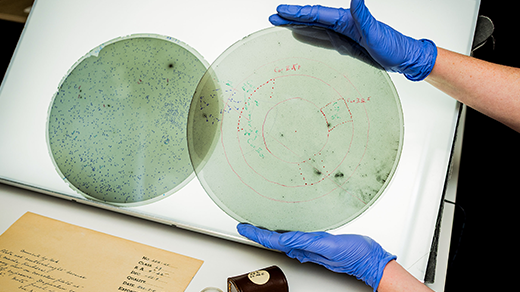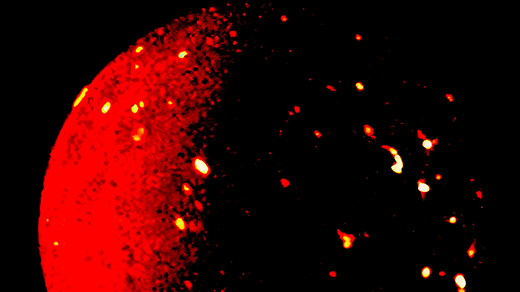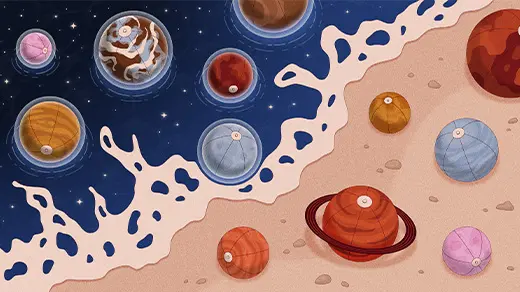What's up in
Astronomy
Latest Articles
How Modern and Antique Technologies Reveal a Dynamic Cosmos
Today’s observatories document every pulse and flash in the sky each night. To understand how the cosmos has changed over longer periods, scientists rely on a more tactile technology.
Why Is Venus Hell and Earth an Eden?
A team of scientists has investigated how Earth’s twin became so inhospitable, and whether the same will happen to our planet.
A Single, ‘Naked’ Black Hole Rewrites the History of the Universe
The James Webb Space Telescope has found a lonely black hole in the early universe that’s as heavy as 50 million suns. A major discovery, the object confounds theories of the young cosmos.
The Biggest-Ever Digital Camera Is This Cosmologist’s Magnum Opus
Tony Tyson’s cameras revealed the universe’s dark contents. Now, with the Rubin Observatory’s 3.2-billion-pixel camera, he’s ready to study dark matter and dark energy in unprecedented detail.
Physicists Start To Pin Down How Stars Forge Heavy Atoms
The precursors of heavy elements might arise in the plasma underbellies of swollen stars or in smoldering stellar corpses. They definitely exist in East Lansing, Michigan.
What’s Going On Inside Io, Jupiter’s Volcanic Moon?
Recent flybys of the fiery world refute a leading theory of its inner structure — and reveal how little is understood about geologically active moons.
The Road Map to Alien Life Passes Through the ‘Cosmic Shoreline’
Astronomers are ready to search for the fingerprints of life in faraway planetary atmospheres. But first, they need to know where to look — and that means figuring out which planets are likely to have atmospheres in the first place.
How Will We Know We’re Not Alone?
The first planet beyond our solar system was identified just 30 years ago. Since then, thousands have been found and characterized. As we look for more, exoplanet experts are also probing for signs of alien biospheres hundreds of light-years away. In this episode, co-host Janna Levin speaks with astrophysicist and astrobiologist Lisa Kaltenegger about how we’ll know we’re not alone in the cosmos.
The Cosmos Teems with Complex Organic Molecules
Wherever astronomers look, they see life’s raw materials.








